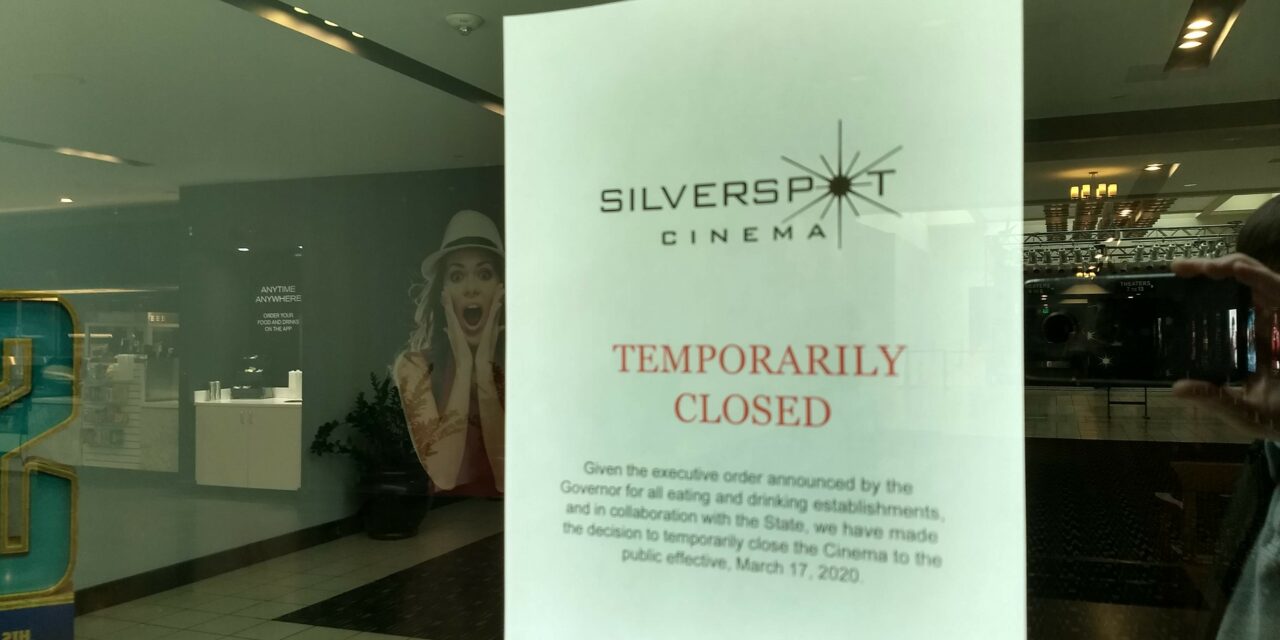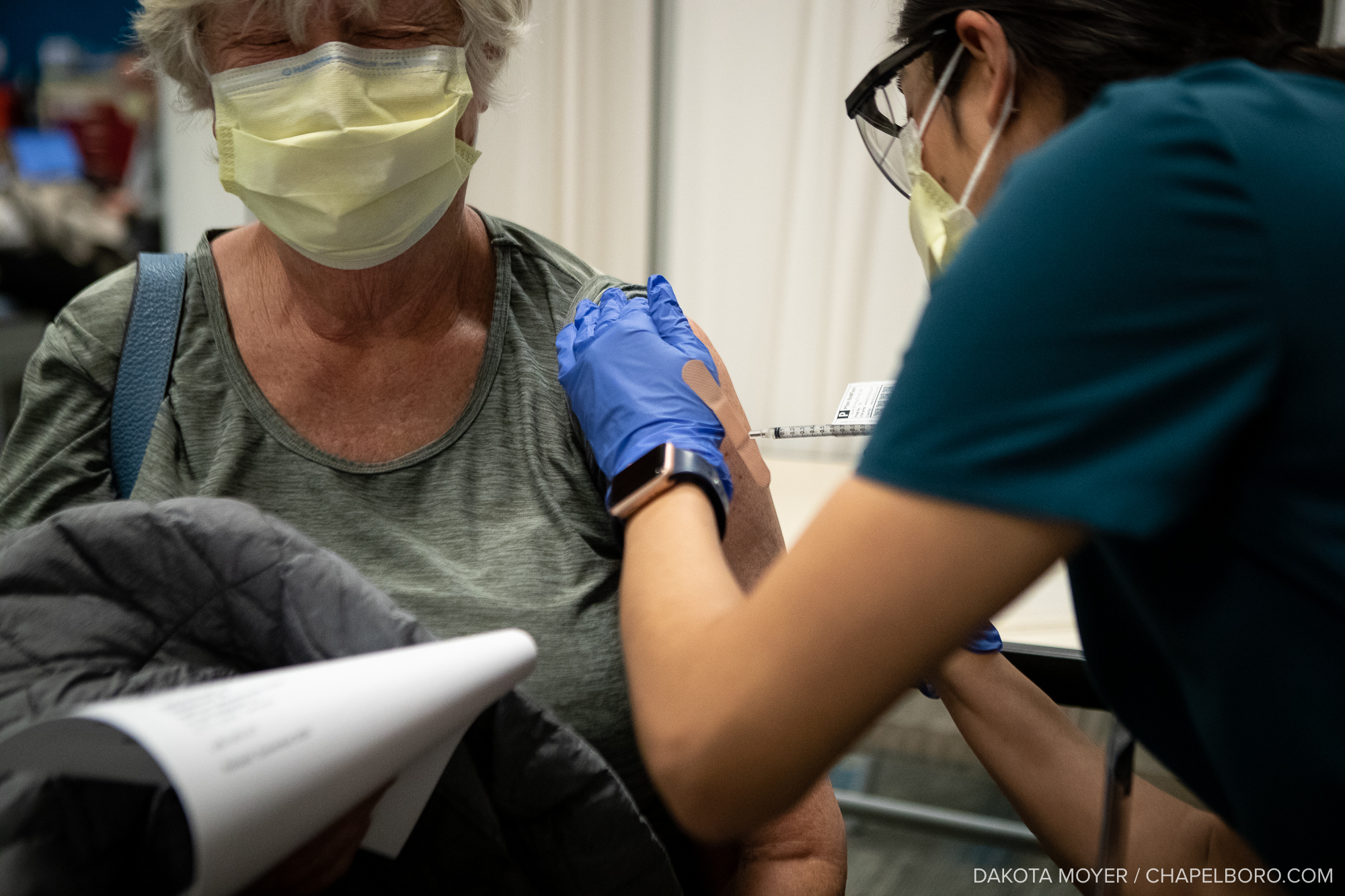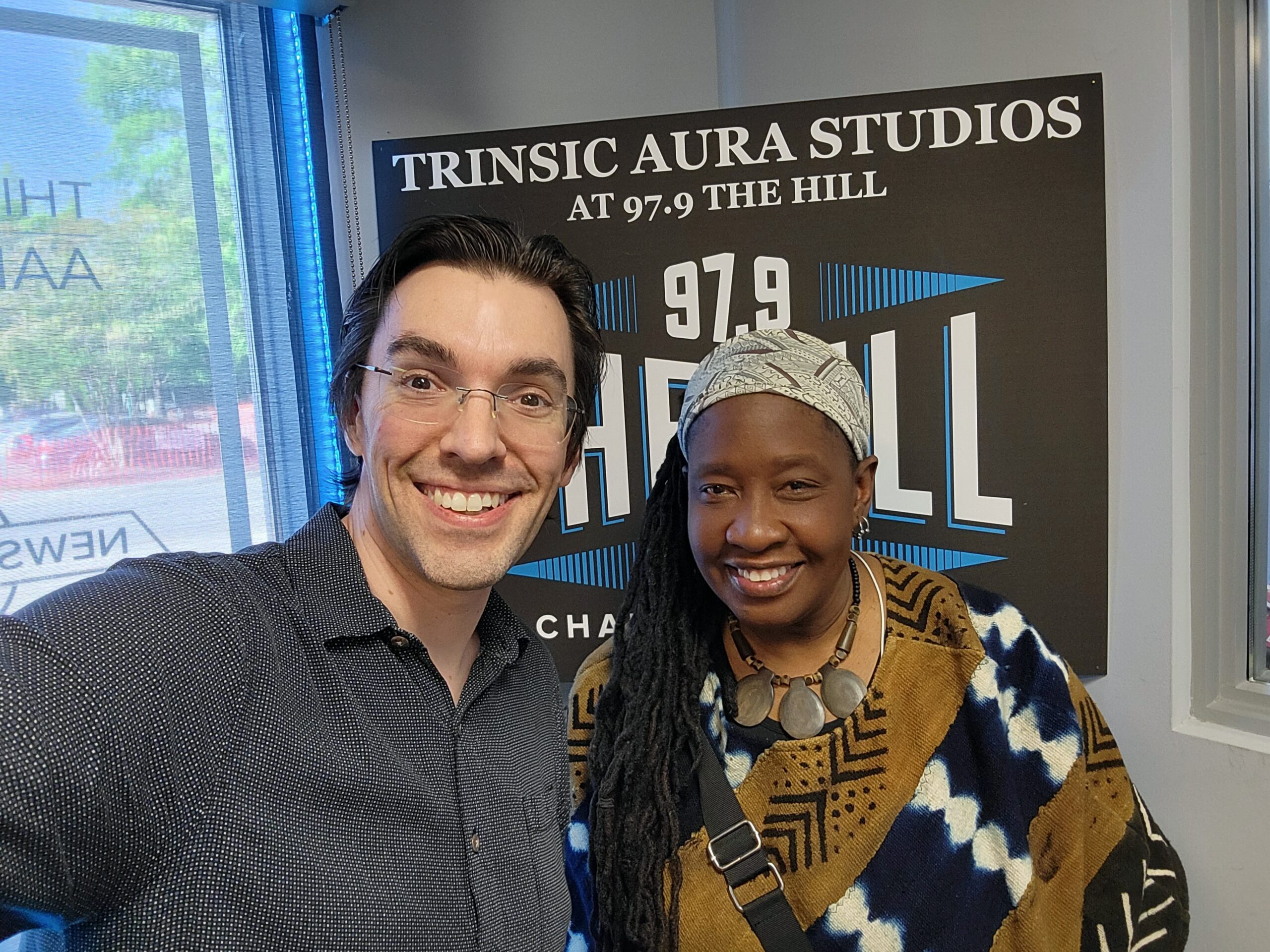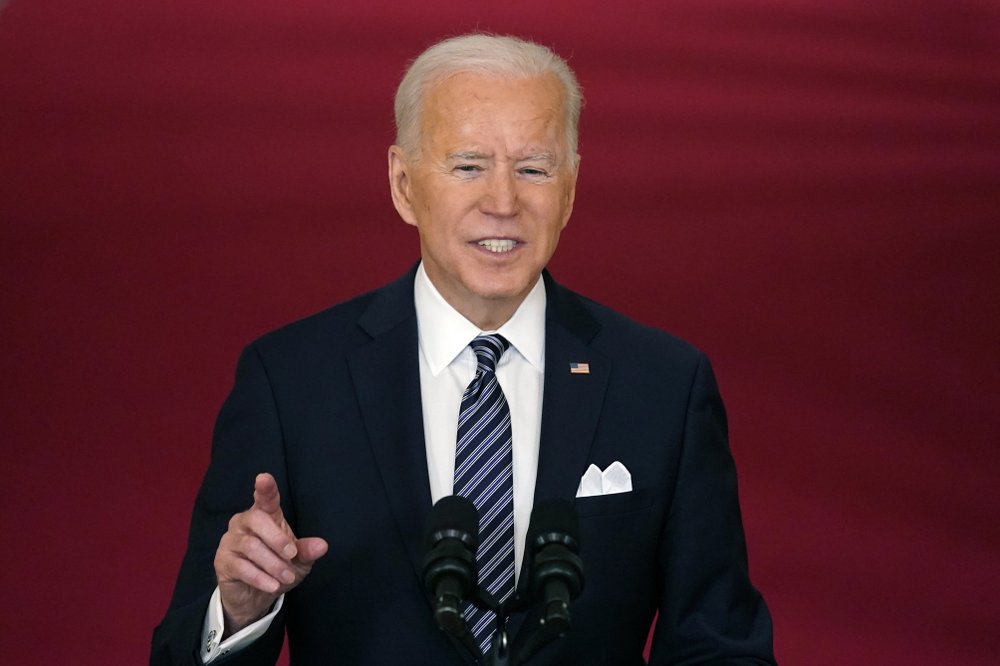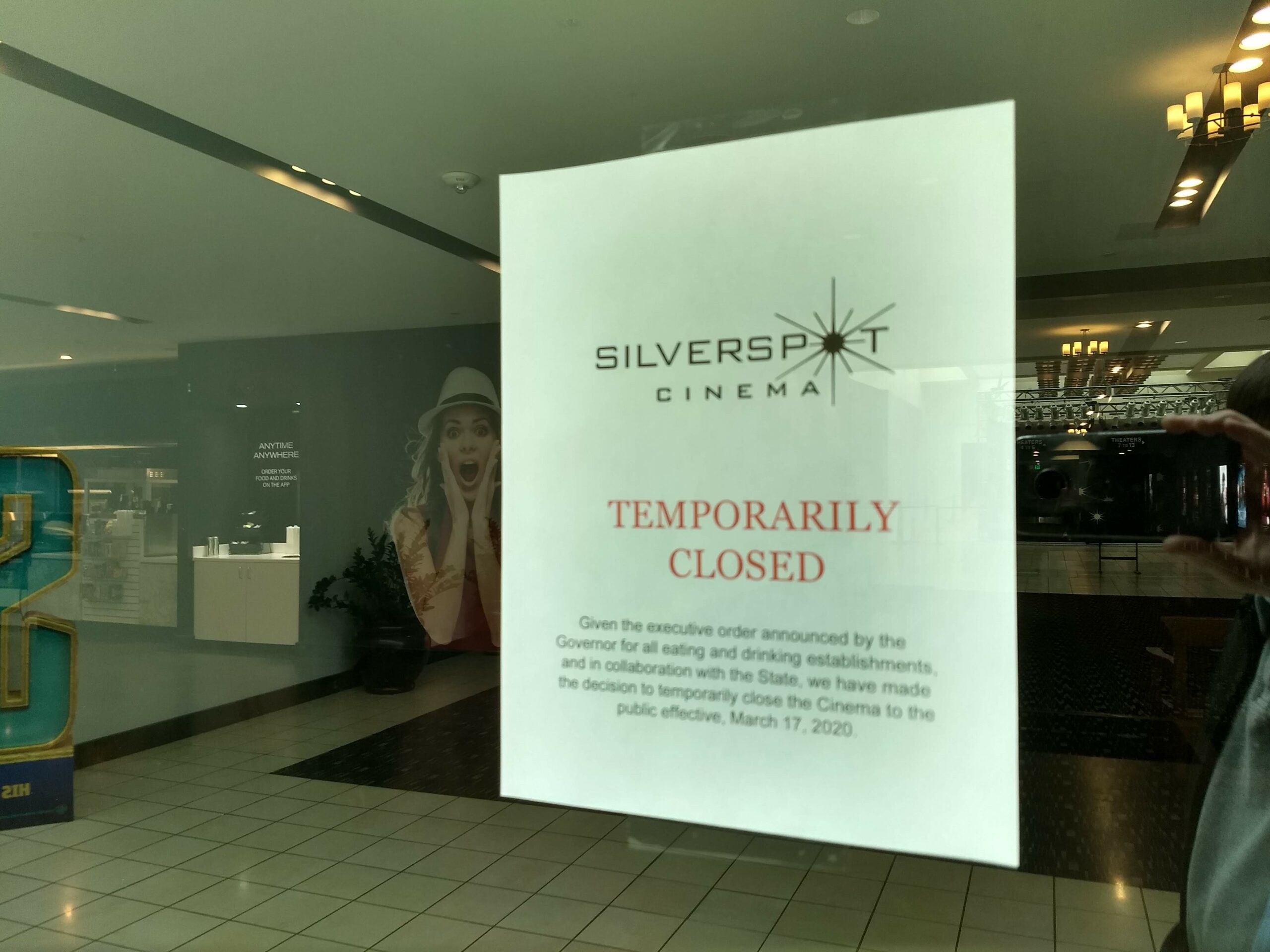In the spring of 2020, everything changed.
Everything changed first over COVID-19. People worked from home, others lost their jobs. Overnight, our plans changed. Our needs changed. And the organizations we counted on to meet those needs – they had to change as well.
And something else was happening too. The same week North Carolina closed its schools, a woman named Breonna Taylor was shot and killed by police in Louisville. Two months later, George Floyd was killed in Minneapolis. And as people flooded the streets in protest, once again, we realized things had to change.
It’s now been three years since that spring. What have we learned from our experience? What lessons have we taken away? What changes have we made? And which of those changes will last?
“Three Years” is a series by 97.9 The Hill’s Aaron Keck – looking back on our memories and lessons learned from our collective experience, drawn from conversations with numerous government officials, nonprofit heads, scholars and thought leaders in the Chapel Hill-Carrboro community.
Click here for the entire 15-part series.

Listen to Chapter 1:
Chapter 1: The Beginning
I start by asking people about their memories. We all have different stories.
“I was still a senior in college,” says Chapel Hill Town Council member Tai Huynh. “I made plans for Spring Break, me and a friend. We traveled to Vancouver, (and) on the second leg of the trip, we were supposed to go to California – (but) California shut down while we were in Canada. So we had to figure out how to get back…
“You know, it was all so sudden. And as you know, we never did come back to school. So I ended up finishing my last semester at UNC back at my parents’ house.”
“How’d you get across the border?” I ask.
“I honestly don’t really know.”
While Tai Huynh was trying to get to California, Kidzu Children’s Museum executive director Jamie DeMent Holcomb was already there.
“We were watching the news and seeing things happening,” she says. “I remember having conversations with my husband: ‘this is coming here, and what are we doing? We’re about to get on an airplane and fly across the country. Are we going to end up in quarantine somewhere?’
“(We were) having all these ‘what if’ conversations – and you know, a week or two later, every single what-if conversation that we had, actually happened.”
A little closer to home, North Carolina poet laureate Jaki Shelton Green found herself in Asheville, working in the local schools.
“We were staying at Grove Park,” she says. “And my friends in Asheville had already heard that all the cases in town were at Grove Park. And they don’t want to tell me (and) freak me out!”
Even then, just days before everything shut down, many were acting as if nothing was different.
“Every day we would come into the hotel,” Green says, “and I kept saying to my husband, ‘I really want to go over there and sit by the fire – but there are like 40 people over there, I don’t think we should do that.'”
But even as the pandemic snuck up on some of us, others had been planning for the possibility for months.
Orange County Health Director Quintana Stewart had been meeting since November with EMS leaders as well as county manager Bonnie Hammersley and Penny Rich, the chair of the Board of County Commissioners. It was Stewart who shouldered most of the burden of deciding what to cancel and close – starting with Chinese New Year festivities that January, ironically right as Chinese Americans were experiencing a rise in discrimination.
“I was getting reports of how some of our Asian community members were being discriminated against, and blamed, and subjected to a lot of verbal attacks and abuse,” she says. “I remember early on, writing out something for our department and saying, ‘This virus doesn’t discriminate, and neither do we at Public Health.’”
I had forgotten about Chinese New Year. I’d also forgotten about the Near and Far Festival, another big event that was among the very first cancellations in Chapel Hill.
But of course those cancellations were just the beginning.
“We needed to act sooner rather than later, and probably sooner than it felt comfortable,” says Jenn Weaver, who had just taken over as the new mayor of Hillsborough. “The way this was moving, we had to take these measures before things got bad, to prevent them from being much worse.”
And it wasn’t just government agencies that were taking action. We sometimes forget, but businesses were also making their own choices to shut down – and individuals were making their own choices to stay home.
“I think that that was just another signal that things were moving,” Weaver told me. “People understood, people were getting this, they also saw what’s happening. And I know it was really difficult – understatement of the year – for these small businesses to shut down, but it also probably made a really big difference in the general public internalizing what needed to happen in those early days.”
“That reminds me of the empty restaurants that my husband and I would walk into in the couple of days leading up to (the shutdown),” I replied. “Like, the self-selection wasn’t just the businesses – it was people, just deciding, before anything officially shut down, ‘we’re not going to go out.'”
“I remember very distinctly running into Steven Petrow at the Cup-A-Joe,” Weaver said, “while things were still open but stuff was really starting to hit the news – and you have to remember how we knew so little about how it spread. And Steven (was) the first person I encountered (where) we kind of decided at the same time (that) we’re not shaking hands anymore…
“I think he gave me some spirit fingers. And that really stuck with me.”
Over in Durham, then-Carrboro Town Council member Damon Seils was working at Duke, another organization that started taking action early.
“Several days before everyone started really locking down, Duke had encouraged folks to start working from home,” he says. “Which was a big signal, for an employer like Duke to tell its employees to stay home.”
Back in Asheville, Jaki Shelton Green was getting her information from local teachers.
“It wasn’t really a concern yet,” she says, “until I guess around that Wednesday (March 11), when teachers were telling me that the school board had called an emergency meeting. They didn’t know what it was about.”
That was the same Wednesday that UNC Chancellor Kevin Guskiewicz was holding an emergency meeting of his own in Chapel Hill.
“I remember calling that meeting with my senior leaders,” he says, “and telling them that we would have to move instruction and all of our university work to a remote environment. And there were a lot of shocked faces in the room, in this conference room here in South Building.
“It was March 11. I remember it as if it was yesterday.”
And while all those big decisions were being made at the top level, individuals were making their own decision – to run to the grocery store.
“My daughter, that Friday, she called me and she said, ‘Uh, you all should shop in Asheville, because there’s nothing,'” says Jaki Shelton Green. “She said, ‘I’ve been to Burlington, I’ve been all over. Alamance County, Wake County, Orange County, Durham County, they’re out of…’ and she just listed everything. The grocery stores were bare. So then we started panicking a little bit.”
That same sudden uncertainty hit every individual, every family, every business, every organization, and every community, all at the same time.
Richard Turlington of Orange County Habitat for Humanity was working on a project with three dozen retired volunteers, plus a team of students from Vassar College who were in town for spring break.
“Back before the pandemic, we were doing regular potlucks,” he says. “We had a Wednesday potluck, we had everybody out on our project in Hillsborough, and we were like, ‘is this gonna affect us at all?’ And I think that night, Duke shut down. And then the next day, UNC shut down.”
That shutdown on campus hit quickly.
“When it hit, I was doing one class where students had to go to the archives,” says UNC history professor William Sturkey. “And the whole class, the premise of the class, is to teach students how to write and research – and then all of a sudden, the archives were shuttered. Nobody in the world could go into Wilson Library!”
Back in Asheville, the phone rang for Jaki Shelton Green.
“I got a telephone call from someone in the governor’s office,” she says. “The governor had someone call me: ‘Ms. Shelton Green, where are you?’ And I said, ‘I’m in the mountains. I’m finishing up a class.’ And she said, ‘Well, the governor wants you to get home. And stay there.'”
And in Orange County, everything came to a halt for everyone – including Habitat for Humanity.
“The Vassar kids were there for one more day,” says Richard Turlington. “I was like, ‘use them to batten down everything on site, because I don’t know what’s gonna happen next week’ – and the next week we had no volunteers.
“So what do we – what do we do now?”
Click here for the entire 15-part series.
Chapelboro.com does not charge subscription fees, and you can directly support our efforts in local journalism here. Want more of what you see on Chapelboro? Let us bring free local news and community information to you by signing up for our biweekly newsletter.

